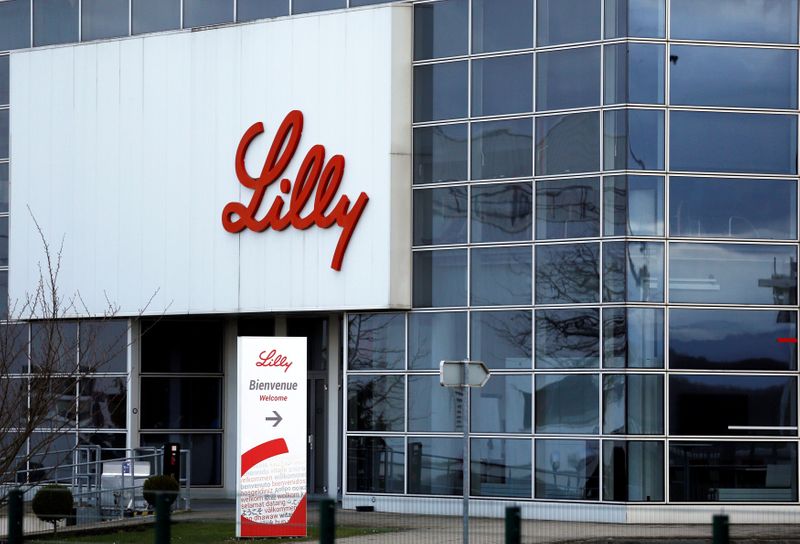(Reuters) – Europe’s medicines regulator said on Friday Eli Lilly and Co’s antibody drug combination can be used to treat COVID-19 patients who do not require oxygen support and are at high risk of progressing to severe illness.
The recommendation can now be used as guidance in individual European nations on the possible use of the combination of bamlanivimab and etesevimab, before a broader approval is given, the European Medicines Agency (EMA) said. (https://bit.ly/3kMpkZr)
The medicines in the cocktail, given via a drip, belong to a class of drugs known as monoclonal antibodies, which are synthetically manufactured copies of infection-fighting proteins produced naturally by the human body.
The EMA said while results indicated the combination reduced the amount of virus present in the back of the nose and throat, there was some uncertainty around the benefits of using bamlanivimab alone. However, the regulator did not rule out the monotherapy as a possible option.
“In terms of safety, most side effects reported were mild or moderate; however, reactions related to the infusion (including allergic reactions) are likely and should be monitored for,” the EMA said.
The results also indicated that the combination and monotherapy led to fewer coronavirus-related medical visits.
The combination was granted U.S. emergency use authorisation last month after a late-stage trial showed the therapies together helped cut the risk of hospitalisation and death in COVID-19 patients by 70%.
The EMA’s advice on Lilly’s therapy follows similar guidance on Regeneron Pharmaceuticals Inc’s antibody treatment last month. The European regulator is currently reviewing a COVID-19 antibody drug from South Korea’s Celltrion.
(Reporting by Indranil Sarkar in Bengaluru; Editing by Shounak Dasgupta)

























